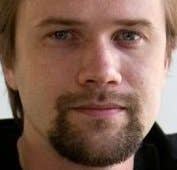Going Coastal
Ahead of the Develop Conference, Dan Pearson takes a look at what makes Brighton a games industry hub
ICO Partners
ICO Partners is a Brighton-based agency providing bespoke consulting on all aspects of online game development and operations. The multicultural staff has experience in publishing online games in all European markets.
Since 2008, ICO has helped established companies to build European deployment strategies, including high-level planning, choosing an office location, organising operational structure and teams, evaluating service providers and assessing the potential of specific games across Europe.
ICO also assists developers on the publishing-related parts of development - from budget planning, tools development, metrics, to business development strategy and free-to-play business models.

Since 2009, the company has offered a public relations service under the ICO Media brand to answer the growing demand for a pan-European solution to communicate with media about online games. Unlike a typical PR agency, it works directly across a wide range of European countries and has a very community-based and audience-centric approach, thereby creating a long-term communication strategy designed to support the long life cycle of online games.
How can the UK best apply its pool of talent to a successful games industry?
Thomas Bidaux: "I'm obviously biased here, but I think we need more studios to make the jump to online games. The UK industry is very focused on console games, and while I believe consoles will still be around for a while, it's a shame that we don't see more studios apply their expertise to making online games - especially as this could allow them more creative freedom in the long term. Note, I mention online games but the same could be said about the mobile space that also has a lot of opportunities to offer."
What's currently the biggest barrier/threat to that success?
"I don't think that tax-incentives (or their absence, as the point is often made), have an influence on the overall fate of the games industry in the UK. In the end, those incentives are only applied to your profits and don't help much if you are just struggling to survive. At the risk of sounding redundant, the current challenge is online.
I don't think that tax-incentives have an influence on the overall fate of the games industry in the UK.
Thomas Bidaux, ICO Partners
"We need more studios to embrace online as a key way of mobilising players for their game, but also for their game's distribution and monetisation. It would be great to see them embrace self-publishing as well. Lots of the studios are in trouble as they are relying on publisher money, or big budgets spent pre-revenue (as Realtime Worlds did). They should learn the publishing job, and lean practices (and learn from the web for instance). Not all studios can afford this approach but this is what they should all aim to achieve."
Littleloud
Littleloud is a BAFTA award winning games and animation developer for the film, broadcast and video game industries. Productions are delivered across multiple formats including Web, TV and hand held devices.
The studio's clients include BBC, Channel 4, Disney, Marvel, Paramount, Sony Entertainment and Universal Pictures.
The company won a BAFTA for its web adventure game, Bow Street Runner, commissioned by Channel 4, in 2008. Following this success, the studio created The Curfew, a game about the erosion of civil liberties written by acclaimed comic book author Kieron Gillen, which won a Games For Change award in 2011.
Littleloud's latest release, Sweatshop, is an innovative tower defence-style game in which players must manage a clothing factory making clothes for Western high-street shops.
With art by pixel artist Gary Lucken (Army of Trolls) and a script written by video game journalist and producer Simon Parkin, Sweatshop launched in July, free to play on the web.

Moving forward the company wants to develop its own gaming IP, while maintaining close contacts with its established clients, crafting effective, successful and meaningful games for a diverse range of audiences.
How can the UK best apply its pool of talent to a successful games industry?
Simon Parkin: "The industry is in a period of transition quite unlike any it's seen in its 30-odd years. What once worked, no longer works in the same way. Meanwhile, ways of working that previously would have seemed like foolishness, now appear sound and robust. It's a period of disruptive turmoil.
"On the one hand this can lead to unrest and anxiety at every stage of the business from the investor downwards. But on the other, when the rules are torn up, a way is made for new innovation, be that in terms of innovative ways of designing games, or in finding fresh ways for people to digest them.
"The challenge for the industry is to find ways to manage staff anxiety in this period of identity crisis, while being courageous enough to explore the new. That way, Britain can lead the global industry, not just follow in its wake."
What's currently the biggest barrier/threat to that success?
"Fearfulness can be paralysing. Of course, studios need to balance risks, but when the landscape of games is shifting so quickly, there's barely any course of action that doesn't represent a substantial risk."
NCsoft
With a successful history creating a diverse catalogue of massively multiplayer online (MMO) games that appeal to many different types of players, NCsoft Corporation has made an indelible mark on the games industry. Established in 1997, NCsoft pioneered many elements of the modern face of MMO gaming and has quickly become the world's premier publisher and developer in this sphere, with offices in Korea, Taiwan, China, Japan, Thailand, the United Kingdom and the US.
NCsoft's European headquarters is based in Brighton - a highly welcoming, multicultural and attractive town that is a fantastic draw to people from across the globe.
Veronique Lallier, NCsoft
Starting with Lineage in 1997, NCsoft has some of the most well established, successful and longest running brands in its catalogue. In April 2004, Lineage II and City of Heroes were launched in North America, with the European launch following a few months later. Around this time the NCsoft Europe office was created in Brighton.
With the Brighton office well established, 2005 witnessed the simultaneous launch of Guild Wars in Europe and North America, a major franchise for NCsoft having enjoyed over six years of online action and almost seven million players participating to date.
City of Heroes will shortly see the largest single change ever to one of its games. City of Heroes Freedom allows players to enjoy the last seven year's worth of content free of charge. Across its titles NCsoft offers a wide spectrum of business models, with this latest change also providing an additional loyalty scheme for those players wishing to extend their experience further.

Veronique Lallier "As a leading global games publisher, NCsoft believes in a global workforce, drawing people from not just the UK but worldwide. In order to best support our customers throughout the EU region this is particularly important. Fortunately, NCsoft's European headquarters is based in Brighton - a highly welcoming, multicultural and attractive town that is a fantastic draw to people from across the globe."
How can the UK best apply its pool of talent to a successful games industry?
"As the industry becomes more diverse and broadens its business and creative horizons the talent available to us becomes equally diverse. Here at NCsoft we have a huge variety of skill sets, levels of experience and backgrounds. With differing audiences, varying approaches and evolving business models across our portfolio this eclectic mix of professionals benefits us no end."
What's currently the biggest barrier/threat to that success?
"It's important to keep an open mind in this industry. Being receptive to ideas, information and input from all our staff at any level keeps business fresh and forward thinking. It's a lack of creativity and narrow-mindedness that causes industry to fall behind the times."
